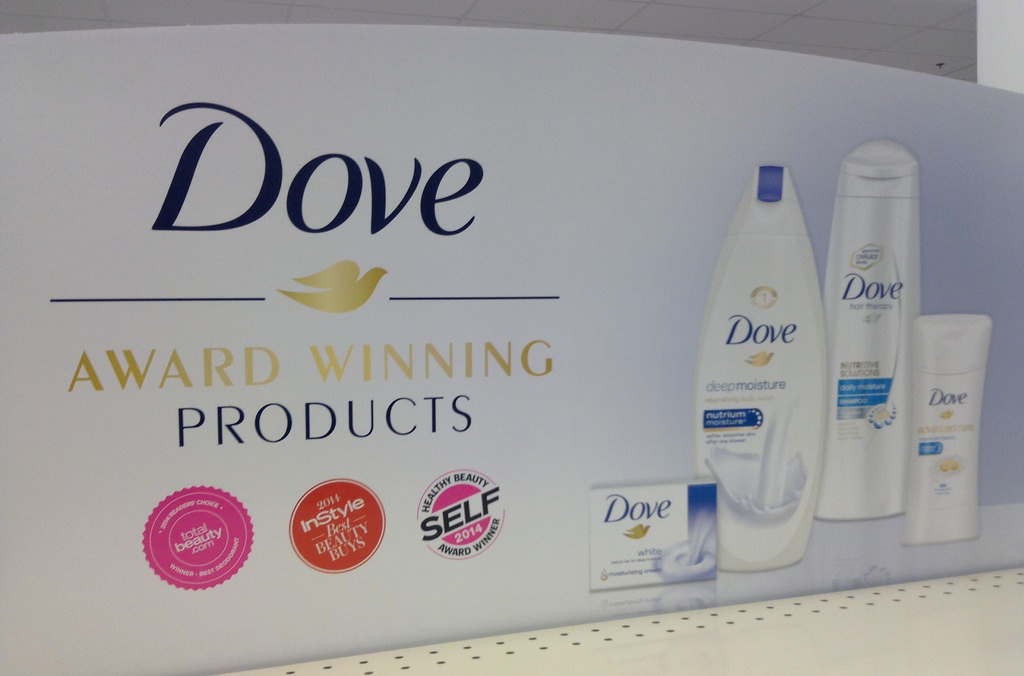Do you remember how Dove not only shot themselves in the foot but then carried on and removed a couple of toes for good measure?
To many it was always going to be a controversial Facebook ad. A soap brand showing a black woman ‘changing’ to a white, then Asian one as she removes her t-shirt appears to be the result of a thoroughly misinformed piece of decision-making.
Dove’s subsequent ‘apology’, claiming that they had ‘missed the mark’ struck many as less then wholehearted. This apparently compounded the initial error, created more column inches and debate across social media than any non-controversial advertisement could ever hope to achieve.
Misinformed mistake or deliberate strategy?
However, as commentator Richard J Hillgrove suggests in Drum, this could just be part of a cynical strategy by Unilever to propel their brand to the forefront of people’s attention.
If you go back to a comment made by Jennifer Bremner, director of marketing for Dove back in March 2016 who said at the time “We want to rally one of the most digitally savvy and socially conscious audiences to join the conversation.” She went on: “Body shaming has sadly become a normal part of today’s online interactions, but sometimes we do not realize the role we are playing in that conversation.”
Perhaps there is a bit more to this than first appears.
Unilever who owns the Dove brand does not seem to have suffered either with their share price rising 5% over the time the furore was going on. The market does not seem to be judging this too harshly when you compare to other viral interventions such as the ill-fated “United breaks Guitars” which wiped 185 million USD off the company’s value in a matter of days. Other airlines such as Delta have stumbled similarly when “doing wrong” for the customer has got into the public eye.
Back to Dove: think about it. How often do you discuss skincare brands in the course of a normal week? Exactly, so all publicity is good publicity, yes?
There are two ways to look at this
One perspective suggests that ‘bad boys’ are running the show and, whilst we might not like what they do, we go back and buy their products because, at the end of the day, they’re cheaper and/or better than other products. (And we’ve forgotten those products anyway because they weren’t in the news).
There’s definitely mileage in an edgy brand that has an element of ‘rebel’ about it – in the brewing industry, Brewdog has been successfully occupying this territory for a number of years (having some reasonable beers in their portfolio helps). Whether Dove thought a touch of rebel was worth pissing off thousands of women and men of colour for is a question worth asking though.
It’s not just Dove that falls into this category, Ryanair has been occupying the territory with a ‘man-you-love-to-hate’ (Michael O’Leary) in the driving seat. Like Dove, Ryanair can shoot itself in the foot – in this case by screwing up pilot rosters – but still stands a chance of posting great results because, if sufficient customers want to endure the many indignities and inconveniences of low-cost flying, then they will continue to do so.
The difference between Dove and Ryanair though is that it’s unlikely that Ryanair made some cynical calculation about the amount of publicity that would ensue from a mistake on pilot rostering.
The second, more constructive, approach to reputation is to place the customer at the centre of all decision-making. It’s hard to imagine that the customer was front of mind in whatever process led to the Facebook ad at Dove. In a genuinely customer-driven company, all relevant customer segments should be ‘present’ when key decisions are made, either by including actual customers or a sufficiently diverse panel of staff who can act as the voice.
In this environment, cynical decisions don’t get made, since the anticipated feelings of customers drive the process. And with social media acting as instant judge, jury and executioner of reputation, it’s worth paying a bit more attention to how any decision will play out in the court of public opinion.
